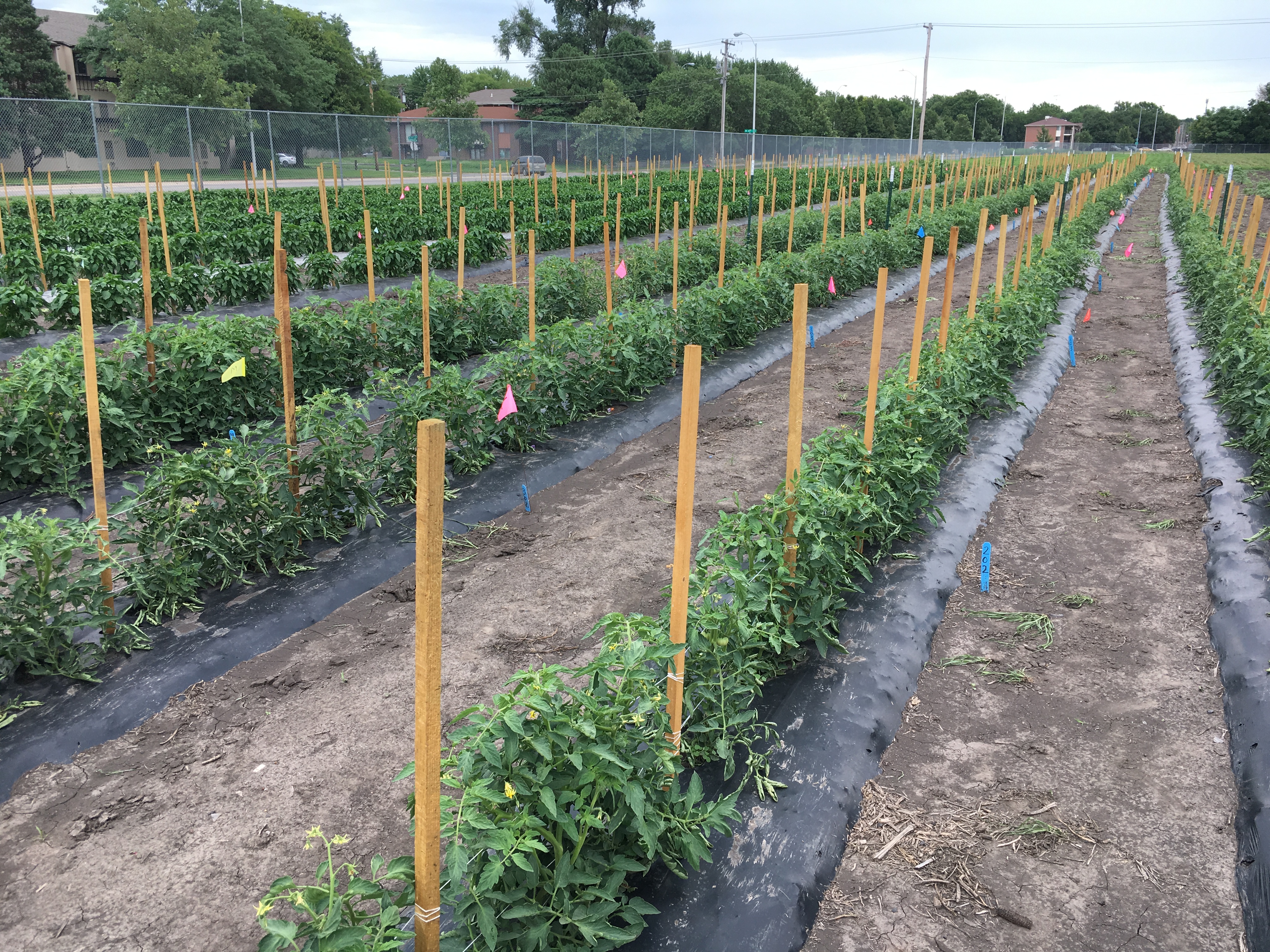
The term bioplastic may sound like an oxymoron. But not to a group of researchers who recently received $6 million from the National Science Foundation (NSF) to unwrap the potential of bioplastics in agriculture.
The project includes a consortium of 15 researchers from the University of Nebraska-Lincoln, Kansas State University and the South Dakota School of Mines and Technology. Each school will receive $2 million in funding. The Nebraska team is led by Dr. Karina Schoengold, associate professor of agricultural economics and faculty fellow of the Daugherty Water for Food Global Institute. Nebraska Water Center Director Dr. Chittaranjan Ray was pivotal in assembling the team.
“This idea spawned from conversations with neighboring researchers in Kansas and South Dakota,” Ray explained.
He said they asked each other, “What can we do that’s really novel?”
Eventually the answer came: Bioplastics with Regenerative Agricultural Properties, or BioWRAP. The project’s overarching goal is to reduce the use of plastics, herbicides, and environmental impacts in agriculture. Given that the three partner states account for 24% of corn, 14% of soybean, and 25% of wheat production nationwide, this is a goal as formidable as it is beneficial.
BioWRAP draws from an impressive array of scientific disciplines that fall into three major buckets – engineering biopolymers, strengthening agroecosystems, and assessing broader impacts. The general concept of bioplastics is to develop biodegradable plastics through renewable, biological substances rather than from finite petroleum-derived sources. The team will investigate three types of biopolymers: Polyhydroxyalkanoate-based, protein-based and hybrid polymers. Ultimately, they will apply these bioplastics to field sites to assess their degradation and ability to enhance nitrogen fixing bacteria, soil moisture, weed suppression, irrigation efficiency, manage temperature, and improve the quality of agricultural products.
Second, the team will investigate how bioplastics can improve agroecosystem health. Weed control is a cornerstone of this bucket. Recent increases in herbicide-resistant weeds have elevated concerns over environmental contamination, human health risks and productivity losses. Additional research is planned around soil and water quality, life cycle assessment and resource use and impact inventory. Dr. Vaishali Sharda, assistant professor of biological and agricultural engineering at Kansas State University, will lead this area and is also BioWRAP’s principal investigator.
“New, locally sourced types of bioplastics that fully break down into safe by-products can be made. These new materials could provide farmers with a green way to control weeds, fertilize crops, protect soil and water resources, and work with nature to better manage their fields," Sharda explained.
The final bucket revolves around broader impacts. Under Schoengold’s lead, the team will scrutinize product adoption, rural sustainability, ecosystem services, markets and sustainable data provision. The team hypothesizes that – if implemented carefully and strategically – BioWRAP will strengthen rural areas socioeconomically through new biorefineries, careers, earnings and market access.
The last thread is student training and workforce development. Beyond the 15 participating faculty, the consortium will encompass three post-doctoral researchers, nine undergraduates, 12 graduate students, 40 high school students and 40 middle school students. Activities include webinars, workshops, curriculum development, summer research camps, and outreach to tribal, women, and underrepresented communities.
In addition to Schoengold and Ray, other Nebraska teammates include Erin Haacker, assistant professor of earth and atmospheric sciences; Loren Isom, assistant director, Industrial Agricultural Products Center; Christopher Proctor, associate extension educator with agronomy and horticulture; Daran Rudnick, associate professor of biological systems engineering; and Mark Wilkins, director, Industrial Agricultural Products Center.
The project is funded through NSF’s Established Program to Stimulate Competitive Research (EPSCoR) Research Infrastructure Improvement Program Track 2. Successful projects involve a consortium of three or more EPSCoR jurisdictions (states) and may receive up to $1.5 million per year for up to four years.
BioWRAP will launch in early 2022 and run through 2025. Each state will host an annual meeting uniting the consortium’s stakeholders, advisory board, research faculty, post-docs, and graduate, undergraduate, and secondary education students.
More details at: https://watercenter.unl.edu/